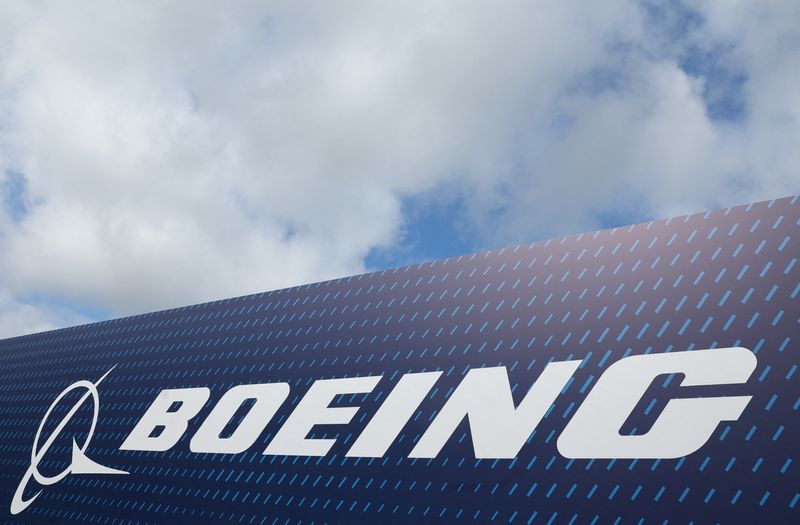(Corrects spelling of Honeywell (NASDAQ:HON) executive's surname to Milas, not Miles, in paragraph 6)
By Allison Lampert
FARNBOROUGH, (Reuters) -A top Boeing (NYSE:BA) supply chain executive said on Tuesday suppliers and airlines had the right to be sceptical about company jet output forecasts, following a recent decline in the planemaker's production.
“It’s a fair sentiment on the part of the supply base and the airlines to say that we failed our commitments to them in terms of the timeline,” Ihssane Mounir, SVP global supply chain and fabrication for Boeing, told a discussion panel with other executives at the Farnborough Airshow.
The U.S. planemaker, which has plans to increase output of its strong-selling 737 MAX, has reduced production significantly this year after coming under legal and regulatory scrutiny following a Jan. 5 panel blowout on a near-new 737 MAX 9.
Supply chain snags and shortages of skilled labor are being blamed more broadly at the air show for holding back aircraft production at a time of soaring airline demand for planes.
Both Boeing and Airbus secured orders at the show despite delivery delays.
"We’re fighting for the same type of capacity as the commercial side," added Matthew Milas, president, defense and space for Honeywell Aerospace.
Planemakers also need to invest more time and money to train new entrants to aerospace following mass retirements of more experienced workers during the pandemic, executives said at a McKinsey & Co panel on supply chains.
That is the case for Airbus, which has recruited “bakers, butchers, people working in a very different business area,” said Delphine Bazaud, SVP head of industrial supply chain and digital operations.

Boeing's slowdown in output to below a regulatory-imposed cap of 38 jets a month is nevertheless giving suppliers the chance to catch up on delays and allow the planemaker to improve production quality.
“We have an opportunity with the slowdown to put the fundamentals in place,” Mounir said.